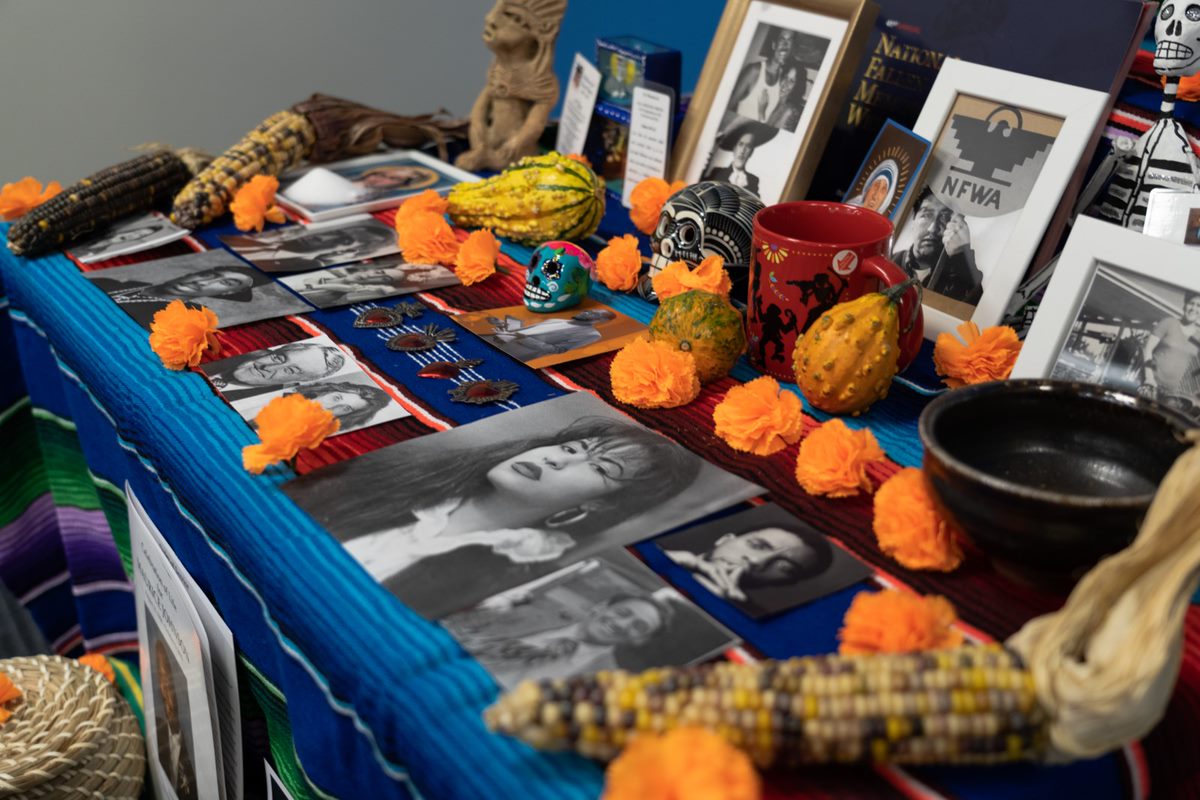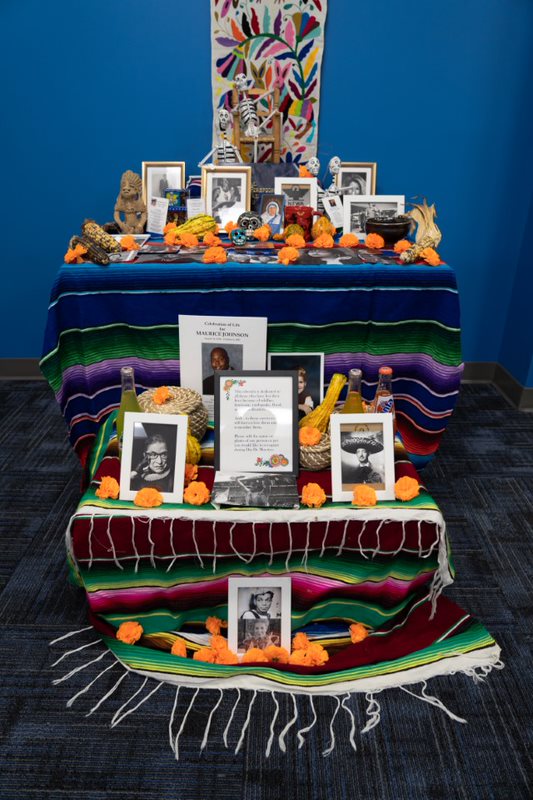
FEMA's Director of the Office of External Affairs Justin Ángel Knighten built an ofrenda for dia de Muertos in his HQ office to share his Mexican culture with the workforce.
In the days after October 31, many put aside frights and treats to remember and celebrate the lives of those who are no longer with us. That is the premise behind Dia de Muertos (The Day of the Dead), which is observed in many Latin American communities and across the nation at the start of November.
Rather than a day of mourning, Dia de Muertos focuses on the memories we hold for people who have made the journey to the other side, giving observers an opportunity to remember and honor the lives of their friends, relatives or ancestors. Families observing this tradition often put “ofrendas,” an altar commemorating lost loved ones, in a place of prominence with photos of those whose spirits will return during celebrations to commune with the living.
This year, Director of the Office of External Affairs Justin Ángel Knighten built an ofrenda for dia de Muertos in his HQ office to share his Mexican culture with the workforce. He dedicated it to all those who lost their lives because of natural disaster – hurricane, wildfire, earthquake, floods and beyond – as well as all those survivors who will forever remember them. He invited colleagues to contribute photos or names of loved ones to participate in and learn about the sacred tradition.

For many at the agency, dia de Muertos is a special time to reflect. FEMA Assistant Administrator Alex Amparo celebrates Dia de los Muertos each year. The day holds a lot of meaning and fond memories for him.
“My family has always observed, Dia de los Muertos along with All Saints’ and All Souls’ Day,” Amparo said. “For me it is about remembrance, thanksgiving and celebration of life. It’s a special day for special people. Friends, family, mentors and even people I may not have met but in some way influenced me. We celebrate vida – life!”
Compassion is a Core Value at FEMA, and we never forget about the families whose lives are forever changed whenever loved ones are lost during disasters. Loss is one of the most stressful and difficult emotions to overcome, but by living our values and remembering the many cultures we serve, we can help disaster survivors and their families along their journey to healing.


